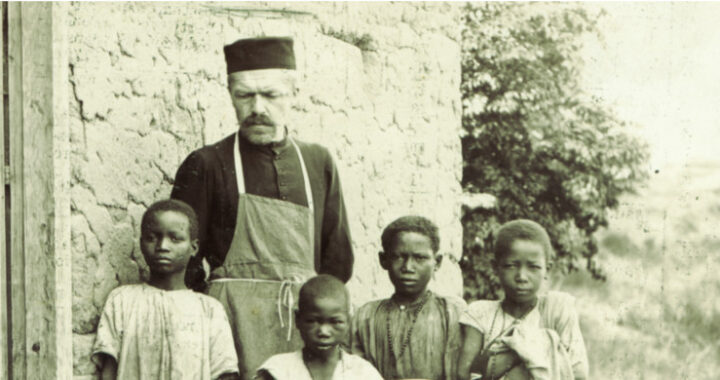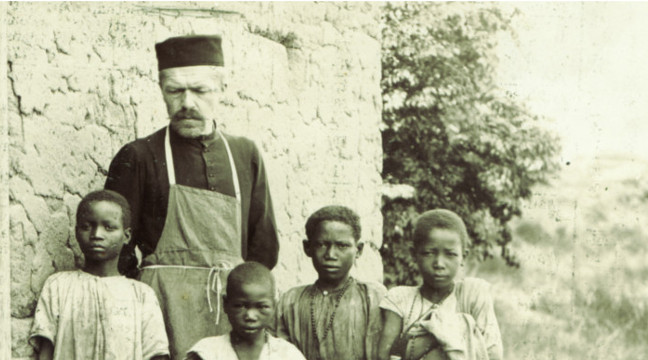
Just after his arrival in Madagascar Father Beyzym wrote to Father Apoloniusz Kraupa, the later missionary in Northern Rhodesia:”We need to be good friars here, as we are left on our own”. For Father Beyzym to be a good friar was to be a good Jesuit, a faithful son of St Ignatius Loyola.
Let us consider how Father Beyzym tried to follow St Ignatius. What typical Ignatian features were manifested by his hard and sacrificial life.
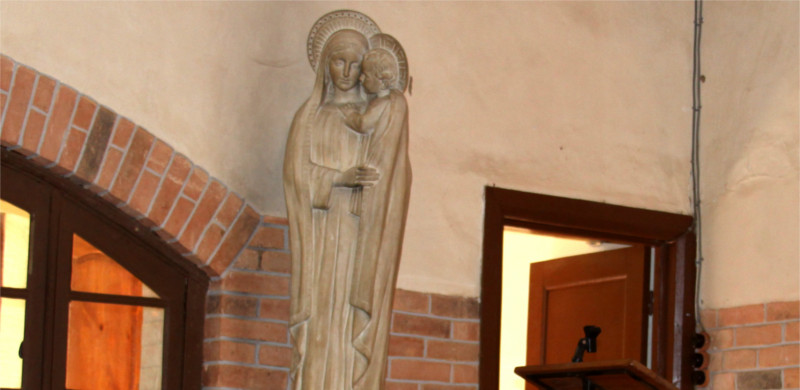
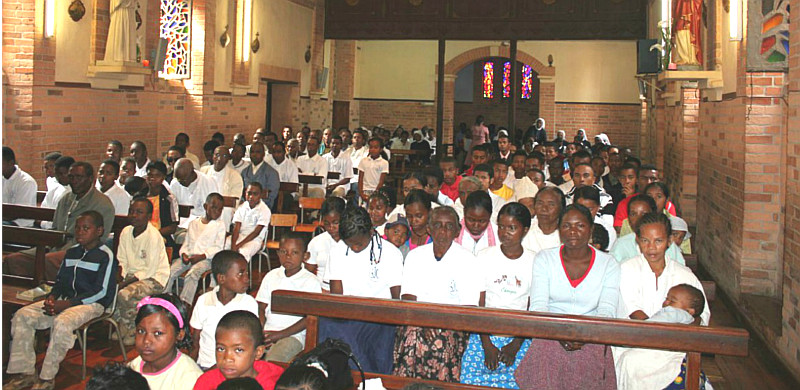
Ignatian indifference
In accordance with St Ignatius Loyola’s letter on obedience, Father Beyzym held it as well as the love for Our Lord’s will as the most valuable of all the sacrifices. The holy indifference, i.e. readiness without looking for one’s own self and one’s will, went hand in hand with those virtues. Father Beyzym was ready to work for the lepers from the very beginning of his Madagascar mission, but he was also ready to return to the country if his superiors ordered. Later, Our Lord’s will, he was ready to leave for Sakhalin. He viewed everything – the country, the family, the issue of either having Polish Sisters of Charity or Sisters of St Joseph of Cluny working in the leprosarium – in the spirit of the saint obedience as long as it was God’s will and God’s delight. In his obedience (i.e. readiness for everything) he always kept in mind the highest goal, defined by St Ignatius for his Order - greater glory of God and greater good for the souls, in that very case, the good for the souls of lepers entrusted to him.
The feature that St Ignatius called indifference, i.e. “the necessity to become indifferent” (Foundation for the Spiritual Exercises #23), Father Beyzym offered to the Blessed Mother as his absolute readiness to experience health or illness, successes or failures. He took care of flowers, but not for himself – he is indifferent, only for the altar decoration and to make the life of the sick more pleasant.
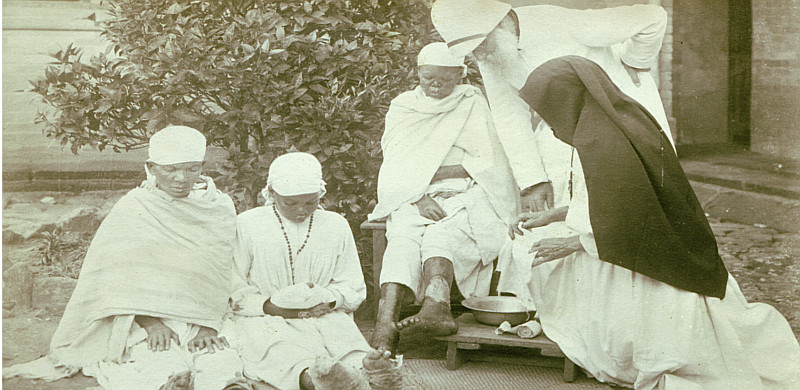
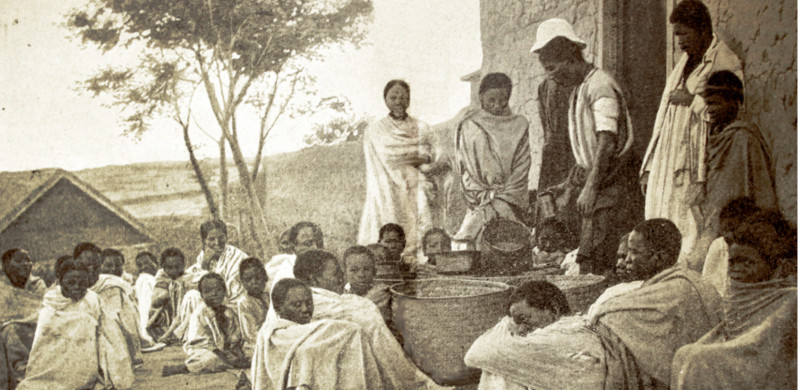
Everything for Jesus and His Mother
Father Beyzym remembered St Ignatius’s maxim: “The more difficulties and persecution one experiences in his deed, the bigger reward one should expect”. The maxim was Father’s support during the hard times. Apart from it, the consolation in his troubles was St Ignatius’s prayer from The Contemplation for obtaining love”: Take, Lord, and receive all my liberty, my memory, my understanding, and all my will — all that I have and possess. Thou gavest it to me: to Thee, Lord, I return it! All is Thine, dispose of it according to Thy will. Give me Thy love and grace, for that is enough for me. Amen (“Spiritual Exercises #234). Father repeated the prayer several times a day. It was the prayer of his wholehearted surrender to God. It also helped Father to bear the homesickness.
Therefore, with all his humility, Father could confess that “being a ruffian, I will die as a son of St Ignatius and Our Holy Lady”.
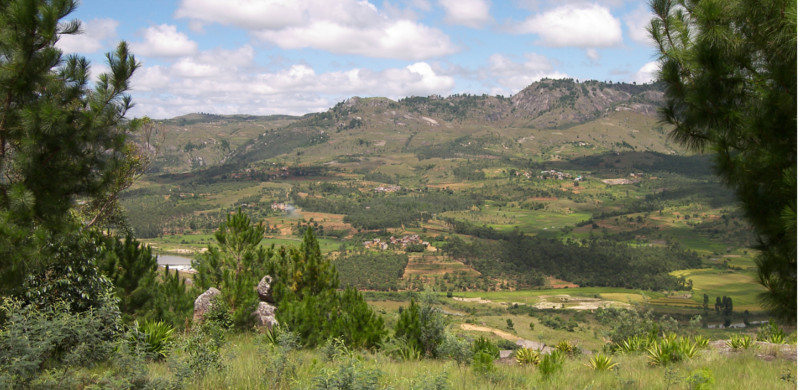
Implicit trust in God
Father Beyzym also found support in another St Ignatius’s maxim on the trustful and, at the same time, responsible cooperation of a man and God: “Trust in God as if your success depended entirely on Him and not on you; but use all your efforts as if you alone did everything and God nothing”. The same way Father wrote about his trust in the Blessed Mother. He trusted in Her, he knew that he was Her instrument, but Father also knew, that he had to think about everything, had to use his all efforts as if everything depended on him.
Father Beyzym cherished the Ignatian principles “Vince te ipsum” (Overcome yourself) and “Agere contra” (Act against). He tried to live according to them, overcoming himself every single day and acting against everything that would divert him from the love for God and the neighbour, from the nobly taken mission. “One should overcome himself not to become fainthearted and not to brawl”. One should act against the self-love, mortify one’s own beloved “I” that “comes out all of a sudden” in the form of selfishness, greed and the spirit of the world. That was Father’s lifelong concern. He once confessed to Mother Kazimiera that he does not understand people, who toil for mundane and personal things, for “their beloved “I”.
His love for mortification and austere life was great. He, who worked in the extremely difficult conditions, in poverty and hunger, serving the poorest and despised, wrote to Mother Ksawera that he had everything, as he had flowers, birds and clean air. He got used to the wounds and patients’ stuffiness. Well, no mortification – no merits. However, it was clearly seen from Father’s letters that he did not experience the lack of mortification in his life.
As he entrusted everything to Out Lord and His Holy Mother and as everything was in their hands, Father was trustingly ready for anything and did not want to look for himself. His only desire was to look for the Jesus’s will, so that there was no his “I” and “no dash of his own will”.
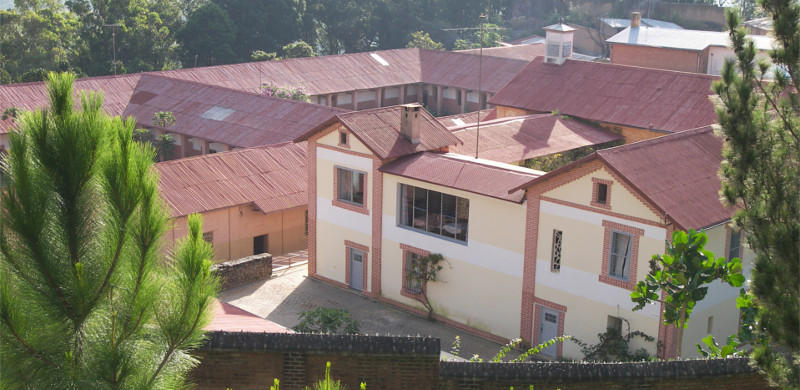
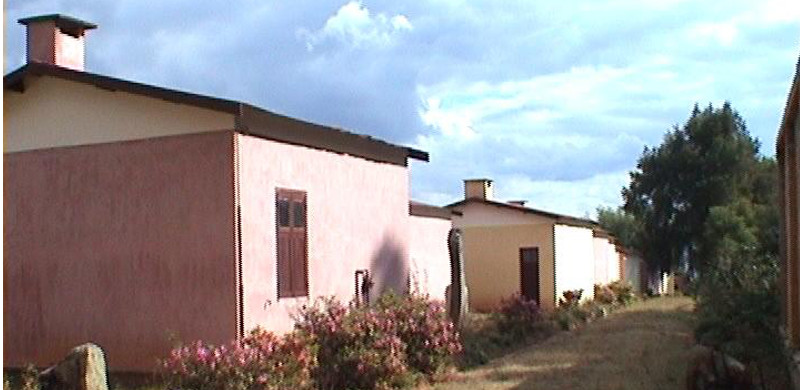
Desire for better service
The unity with God in His sacred will and the readiness for any God’s will manifestation in all things and times was born from such desire. St Ignatius taught Father Beyzym to search for God in everything, love Him in everything, serve Him through everything and with all things. Father Beyzym behaved exactly that way. It was his prayerful communion with God, his Ignatian piety: God in all things and all things in God (Constitutions, #288). When Father described the dangerous thunderstorm to Father Marcin Czermiński, he mentioned that it taught him humility and that in the nature’s power he saw and worshipped the majesty and power of God the Creator.
Seeing the reality in the spirit of the “Contemplation for obtaining love” (Spiritual Exercises, #230-237), Father Beyzym felt united with God. God was close to him and dear in this closeness. Father wrote to Father Czermiński that he was constantly busy, had lots of troubles and worries, but felt as if being on permanent retreats. He tried to be united with God and His will everywhere: in Marana and on Sakhalin, if Gog would want Father to go there, as Father found and loved God with obedient in everything love. Father Beyzym missed his country, but he knew that his “country was there, where was greater service to God and greater support for the souls”. “My country is there, where Our Lord Jesus wants it to be”. Where to die? It did not matter for him at all, as long as it was on Jesus’s service and in the Society of Jesus. Father Beyzym prayed constantly for that for himself and for his Galicia Province.
Ignatian desire to serve was a prominent feature of Father Beyzym’s spirituality. He served and helped the young students in the boarding school infirmary in Ternopil and Chyriv, he served the lepers and seeing the necessity in other places, he wanted, as if it was possible, “to split up into multiple parts, to serve everywhere”.

Zeal for the glory of God and salvation of souls
The zeal for the glory of God and salvation of souls, i.e. execution of the Order’s goal, made Father not only to repent, but to make every effort so that others did not sin. That is why, Father not only took care of morale and free from the serious sins lives of his lepers, he, like St Ignatius, was ready to devote himself to the salvation of every person even from the single mortal sin. What could be said about 500 of Poles on Sakhalin!
Father Beyzym was taught by St Ignatius - “bene et fideliter” - fulfil your duties properly and faithfully, (Spiritual Exercises, #180). He demanded such attitude from himself and others. It shocked and hurt him, when the things were done superficially and temporarily, when they were done “multa sed non multum” (“many, but not a lot”). Such attitude was against his family upbringing and monastic formation, against his human and religious consciousness.
Father Beyzym was guided by St Ignatius’s criteria (Constitutions, #622-624) in his choice of the apostolic works, seeking for the greater glory of God and greater common good for people. After constructing Marana leprosarium and entrusting it into the hands of a proper person, Father wanted to go to Sakhalin, as the matter of souls was very neglected there. There was a lack of workers in the vinery of the Lord. The situation was urgent and dangerous for the perishing in poverty souls. For that reason, Father earnestly prayed: “My Lord Jesus, grant me the grace to get there as soon as possible!”
In the spirit of the Ignatian “Contemplation for obtaining love” Father Beyzym wanted to lead his lepers to God with the help of visible, external things. He looked after the garden, the chapel, the cemetery, liturgical vestments. Father tried to obtain interesting illustrated albums to distract the sick from the idleness, filth and sin and to enchant them with pure beauty and pure interests.
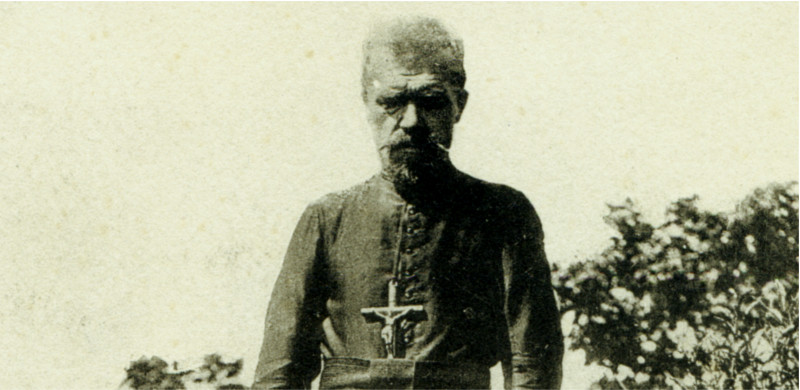
Magis
A typical Ignatian feature was the intensity of Father Beyzym’s life and his activities. Magis – more, more generously, more unselfishly – it was practical expression of the growing love that wanted to give and serve more. Magis led Father to that – more - love to God, love for the souls and the desire to stand before God to be judged not with the empty hands, as “there were plenty of sins and no merits”.
Father Beyzym, like St Ignatius, liked to look up into the sky, night starry sky, searching for heaven. He missed the heaven. He felt disgusted with the earth and the earthly things. The desire to earn his way into heaven awoke in him. Through the prayer, especially liturgical prayer, Father felt as if he broke away from the earth and got closer to God.
Father Beyzym tried to have his annually eight-day retreats before the feast of St Ignatius (on the 31st of July) in Galicia Province tradition. They made him close to God, renew him spiritually and made him more fully conformed to St Ignatius.
Piety of Father Beyzym, as deep reverence and love for God, for His Holy Mother, for the neighbours, to whom he served and helped was distinctly Ignatian.
Father Mieczysław Bednarz SJ
